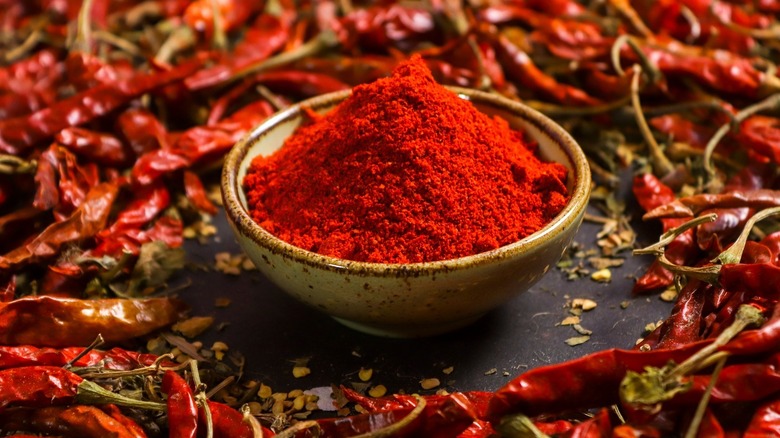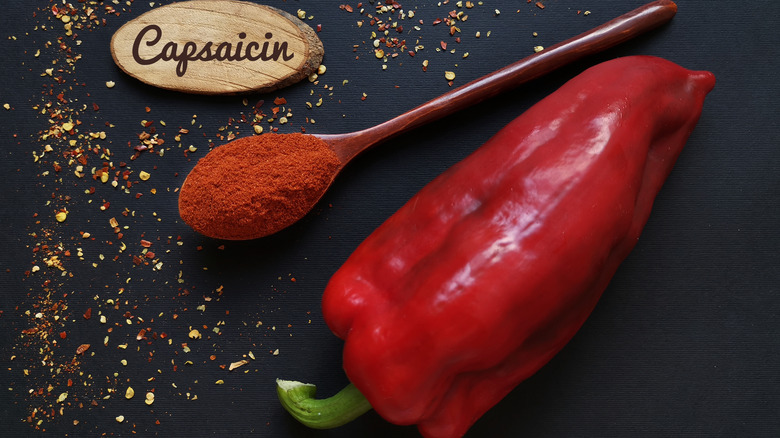The Reason Eating Spicy Food Makes Your Nose Run
Although the pungency of heat found in peppers can technically be measured in units on the Scoville Scale, named for its creator Wilbur Scoville, each individual's tolerance for spicy foods can vary greatly depending on a range of factors from genetics to personality. One thrill seeker's habanero wing is another person's standard hot wing. Some people may feel content to stick with a level five of spiciness at a Thai restaurant while others crank it up to 10 to endure the full eye-watering, sweat-inducing experience.
And speaking of spicy foods making the tears and perspiration flow: They also do a number on our olfactory system. After spooning a few bites of that lamb vindaloo, sure enough, the floodgates open and the snot starts flowing out of your nostrils.
Yes, eating spicy foods can be a messy experience (don't forget the tissues), but pepper heads aren't going to let a little runny nose stop them from enjoying that flavorful fire. So, just why do spicy foods cause a person's nose to run anyway? The answer is capsaicin, a chemical compound found in chili peppers and the main source behind any culinary conflagration (via U.S. Pharmacist).
Bringing the pain, relieving the pain
When you eat something spicy, capsaicin turns up the heat sensation, and your body reacts to the flames by secreting fluids: from your eyes and nose — even your stomach and intestine can get into the mix (via Time Magazine). The body releases these fluids in an attempt to flush out the spice from your system and extinguish the internal blaze. If you've wondered if it's safe to eat ghost peppers, you should surely first prepare how to handle heat before biting into one.
Although capsaicin can set your mouth aflame, trigger a runny nose, and cause general discomfort when ingesting it, studies have shown that this torch-igniting pepper component also delivers a number of therapeutic benefits in treating pain. The same properties in capsaicin that bring the hurt can also help people suffering from pain, by desensitizing pain receptors called TRPV1.
Capsaicin can be applied in the form of a topical cream or ointment to provide pain relief from ailments and conditions such as arthritis, postherpetic neuralgia, and psoriasis. It also has anti-inflammatory properties that make it beneficial for heart health, according to WebMD, and can even bolster your metabolism.
Not everyone can handle the heat, but if capsaicin sparks your taste buds, by all means, order those dozen ghost pepper wings, grab a box of Kleenex, and strap yourself in for a visceral spice ride.

